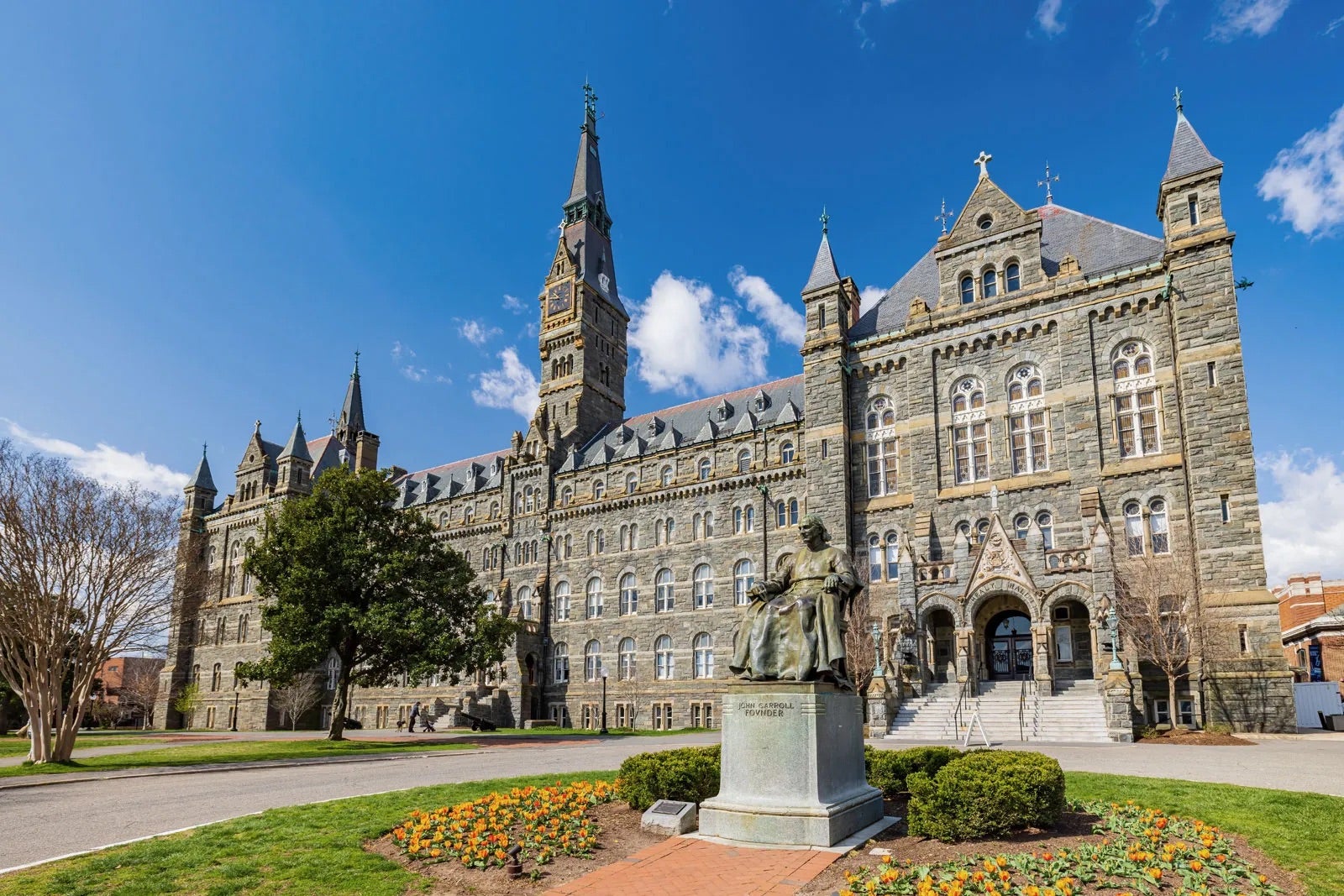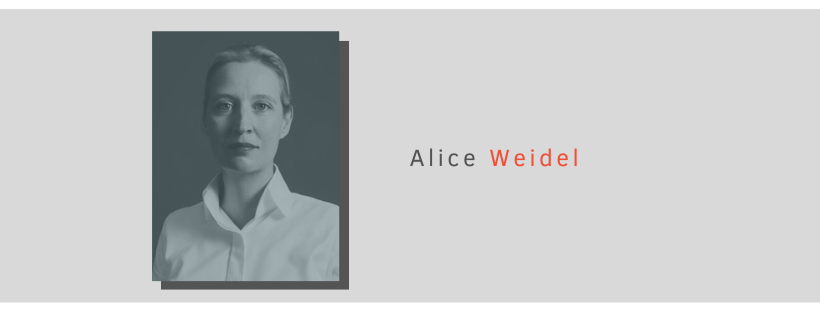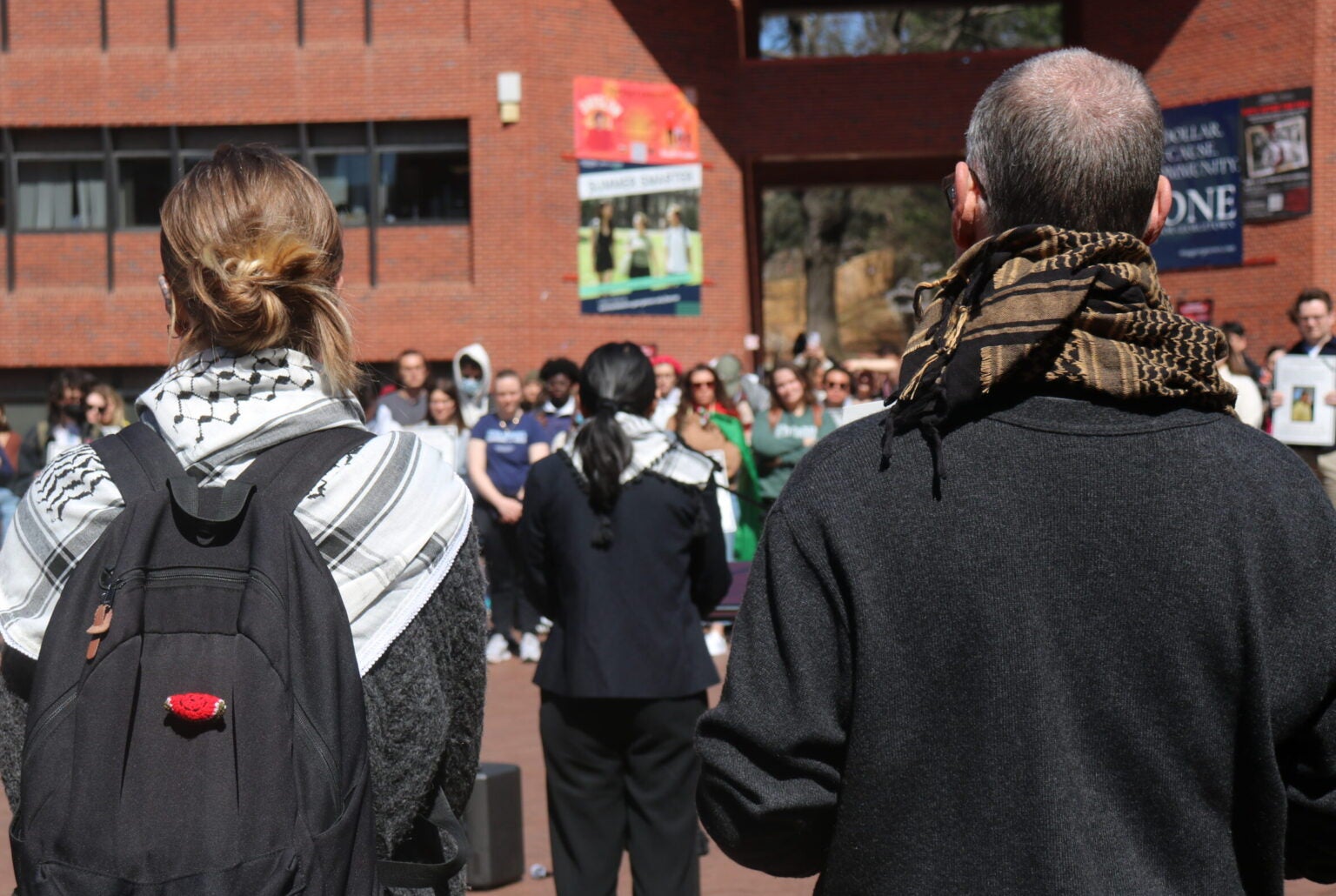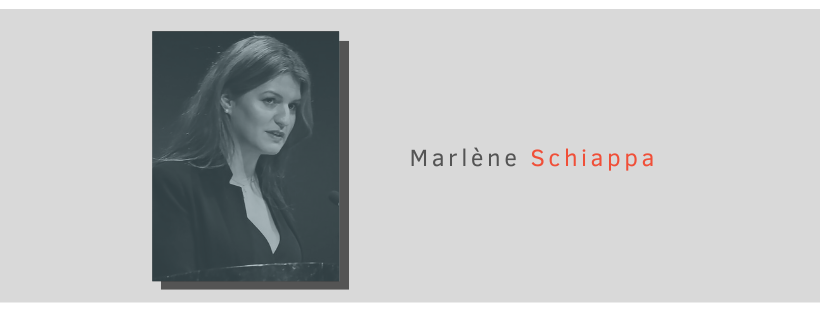As a historian of the Middle East and a historian of religions, my scholarship and teaching for over two decades have focused on the history of interfaith and interreligious relations, pluralism, and identity. Over this time, I have followed with concern the often polarized debates and disconcerting political developments affecting our universities. In reflecting on these trends, I have become increasingly attentive to how questions of belonging, exclusion, and community shape campus life and academic culture. These are not just abstract issues—they are lived realities that echo broader patterns in society, where lines are drawn and redrawn between “us” and “them,” often with profound consequences.
To understand these forces, I have found the framework of “othering” and “belonging,” as articulated by john a. powell and Stephen Menendian, particularly illuminating. As they write, “We reject this type of belonging, and identify the fundamental challenge of how to forge ‘belonging without othering’ instead: how to reject the idea of a categorical other, or ‘them,’ and build a bigger and more expansive ‘we’”. They remind us that “belonging is a fundamental human need, and that need plays a central role in shaping human societies. When manipulated, the need to belong is actually the source of much othering. One of the powers of othering is that it can forge a sense of social solidarity and belonging. This is community building through exclusion, or belonging based on othering”. The real work, they argue, is to “build a society and develop a set of narratives and scripts to support and reinforce identities, policies, and practices of belonging. We need new stories and better storytellers. We need stories that leave no one out or behind, and that help re-weave the social fabric while rejecting mythologies of the past” .
This lens is essential for understanding the stakes of pluralism and inclusion in higher education today. If universities are to be places of genuine belonging, where all students, faculty, and staff are accorded dignity and the opportunity to flourish, we must move beyond frameworks that simply tolerate difference or invite outsiders in as guests. Instead, we must strive to build a more expansive “we”—one that resists the temptation to define itself through exclusion, and instead seeks to create community through shared purpose, narrative, and care.
As I reflect on the challenges facing universities and pluralistic societies today, it is clear that the work of building belonging cannot be separated from a direct confrontation with the most persistent and pernicious forms of othering. Islamophobia and antisemitism, in particular, are not only historical legacies but living realities that continue to shape the experiences of students, faculty, and communities both on and off campus. These forms of prejudice are not isolated or exceptional; rather, they serve as barometers of social cohesion and the health of our democratic institutions. Both Islamophobia and antisemitism are multidimensional, manifesting as religious, ethnic, and cultural exclusion, and often intersecting with other forms of marginalization such as racism, xenophobia, and nationalism. Their resurgence in recent years—whether through hate crimes, discriminatory policies, or the normalization of bigoted rhetoric—signals deeper fractures within our societies. On university campuses, these dynamics can surface as exclusionary speech, threats to safety, or the silencing of certain voices in academic and public discourse.
Addressing Islamophobia, antisemitism, and other forms of othering on campus cannot be left solely to outside authorities or external mandates. It is the responsibility of students, faculty, and administrators to confront these challenges together, through open dialogue, inclusive curricula, and a campus culture that affirms the dignity and safety of all. Universities are uniquely positioned to model the very practices of belonging, mutual respect, and critical engagement that are so often missing in the wider society. Protecting academic freedom and institutional autonomy is not about resisting change, but about ensuring that the campus community itself leads the way in building a more just and inclusive environment—one that is resilient precisely because it is self-governing and rooted in shared values.
While scholars such as powell and Menendian have rightly identified Islamophobia and antisemitism as “leading indicators” of broader social fragmentation and othering , the imperative for universities and civic leaders is to move beyond diagnosis to action. The success of pluralism and the promise of higher education depend on our willingness to confront these forms of exclusion head-on, to create spaces for honest dialogue, and to model the kind of society in which diversity is not merely tolerated, but embraced as a source of collective strength.
Early Academic Formation: Learning to Feel Languages
My academic journey began at the University of California, Berkeley, where I graduated in 1992 with a double major in Middle Eastern Studies and Near Eastern Studies. I began studying political science and history, but soon found myself equally drawn to the languages and cultures of the Middle East, focusing on both Arabic and Hebrew. That’s when I decided to abandon political science and the “Arab-Israeli conflict.” My Hebrew teachers were Israeli, and my Arabic instructors came from diverse backgrounds—including Palestinians. This diversity of perspectives was not just academic; it was deeply personal and transformative.
In those classrooms, we did more than conjugate verbs or memorize vocabulary. We learned to feel the languages, to appreciate their rhythms, idioms, and the cultural worlds they opened up. Our Israeli, Palestinian, and other instructors brought their lived experiences into the classroom, focusing on the everyday realities and the reciprocal exchanges that define genuine pluralism. We practiced speaking in Hebrew and Arabic not just as an intellectual exercise, but to step into another’s shoes, to feel the weight of words and the possibilities of understanding.
A Fulbright in Israel/Palestine: A Different Era
In 1992, I was awarded a Fulbright scholarship to Israel/Palestine. There, I enrolled alongside Israeli master’s students, immersing myself in the study of Hebrew and Arabic, as well as medieval and modern texts and literature. This was a pivotal moment: the end of the first intifada, a time when, despite tensions, there was a widespread sense—shared by both Palestinians and Israelis—that a better future, grounded in dialogue and cooperation, was possible. The peace process was gaining momentum, and academic and cultural exchanges were often viewed as hopeful steps toward mutual understanding and reconciliation. The atmosphere, while marked by uncertainty, was shaped by possibility and a willingness to engage across lines of difference—an openness that is more fraught and contested today. Studying and engaging with both Israeli and Palestinian peers and professors during this period gave me a unique perspective on the complexities of the region and the importance of language as a bridge for understanding.
Politics were never centered, and as a student, politics held little value for me. At the time, there was never the level of hate speech that has, sadly, become more common on some campuses in the United States today, fueled in part by the ongoing human catastrophe in the Holy Land and by a lack of security and support for students of all backgrounds—Jewish, Muslim, Arab, Christian, and others. Ensuring that all students feel safe and supported is essential for the university to fulfill its mission as a space for open, respectful dialogue and learning.
Teaching Across Borders: Cambridge, Munich, Doha
My commitment to fostering civil disagreement and mutual understanding has only deepened through my international teaching experiences.
From 2010 to 2013, I was a fellow at St Edmund’s College, Cambridge, and served as Academic Director at the Woolf Institute. In Cambridge, I focused deeply on interfaith relations and the study of encounters between religious traditions. At the Woolf Institute, I led and participated in initiatives designed to advance understanding between Jews and Muslims and Muslims and Christians. Our approach combined rigorous academic research with learning about the practice of interfaith, equipping students and community leaders with the tools to engage meaningfully across lines of difference. The Woolf Institute’s unique position at the intersection of scholarship and public engagement enabled the Institute to not only foster tolerance, but genuine curiosity and empathy—qualities essential for navigating today’s complex and often polarized world. My time in Cambridge reaffirmed the transformative potential of academic institutions as places where interfaith understanding is not just studied, but lived, and where future leaders are prepared to build bridges in their own communities.
From 2013 to 2014, I served as the Allianz Visiting Professor at Ludwig Maximilians University (LMU), Munich, engaging with students from across Europe and the Middle East. The German academic context, with its emphasis on historical consciousness and critical debate, challenged me to rethink my own pedagogical approaches. I saw firsthand how Germany’s history informs its commitment to dialogue and its sensitivity to issues of identity and memory.
In 2023, I taught at Georgetown University’s branch campus in Doha, Qatar, where I offered an interdisciplinary proseminar and a course on religious experience to first-year undergraduates from a remarkable array of cultural and religious backgrounds—including Qataris, Americans, Canadians, Palestinians, Hindus, Sunni and Shi‘i Muslims, Catholics, Protestants, Confucianists, Buddhists, and more. I also taught a history of religions course and a course on religious pluralism in both Middle Eastern and global contexts. The diversity in my classroom was not just demographic; it was intellectual and spiritual. Group assignments and class discussions became opportunities for students to share their distinct perspectives and to learn from one another, fostering a more informed and empathetic discourse. Students gained a greater appreciation for each other’s cultures, both Qatari and non-Qatari, and I too was enriched by their insights. I look forward to offering these courses again in the future.
The Value of International Students
As a historian of the Middle East and a historian of religions, I have long studied the movement of people, ideas, and traditions across borders. Today, I am struck by a new and consequential migration: the shifting flows of international students and scholars. International students have always been essential to the vibrancy and excellence of our campuses. In the 2023–2024 academic year alone, over 1.1 million international students contributed nearly $44 billion to the U.S. economy and supported more than 378,000 jobs. But their impact goes far beyond economics. From the experience I earlier described, international students bring diverse perspectives that enrich classroom discussions, foster cross-cultural understanding, and drive scientific research and innovation. They introduce new cultural traditions to their peers, challenge assumptions, and help create an inclusive, dynamic learning environment.
We are now witnessing a marked migration of students and scholars away from the United States. As visa hurdles, political uncertainty, and questions about campus climate persist in the U.S. as a result of the Trump administration’s assault on Universities, many talented students are increasingly choosing to pursue their studies and careers in Europe and the Gulf countries—regions that are investing heavily in higher education and actively welcoming global talent. Although the United Kingdom’s visa restrictions remain a significant barrier for many students and academics, its world-class universities and research infrastructure continue to attract many, especially as part of a broader European landscape that is becoming more appealing. This trend signals the beginning of an academic brain drain, with American universities at risk of losing the very individuals whose presence has long sustained their intellectual vitality and global leadership. If these patterns continue, the global map of academic excellence and influence will be redrawn, with Europe, the United Kingdom, and the Gulf poised to benefit most from this new migration of minds.
The Importance of University Autonomy
Universities must remain places where all students are welcomed and nurtured so that they may succeed in life and become the next generation of leaders, informed by a solid education in the humanities, social sciences, and beyond. Institutional autonomy is vital for supporting academic freedom, which is the necessary corollary of a thriving higher education sector. Without autonomy, universities cannot be self-governing, and the danger is that external interference will ultimately limit academic freedom and the ability to pursue knowledge without fear or favor. The American tradition of higher education has long recognized that universities flourish when they are centers of free inquiry and discussion, protected from undue political or special interest pressures. This vision remains as urgent today as ever.
As the Association of Governing Boards of Universities and Colleges affirms, “Since Colonial times, America’s higher education system has stood upon the principle and inherent value of college and university autonomy, consistent with national interests but free from direct government control. It is this shared commitment to autonomy that has in many ways defined our nation’s higher education system: Institutions set their own respective missions, shape their academic programs that advance the mission, and continuously evolve new and innovative models of education that meet the expectations of a changing student body and a demanding public”.
Unfortunately, increasing external pressures and political interventions from the Trump administration threaten this autonomy. It is incumbent upon all who value higher education to defend the right of universities to set their own academic agendas and to create environments where students from every background can thrive.
The Jesuit Ethos: Cura Personalis in Practice
A large part of the success I have witnessed at Georgetown is due to the Jesuit Catholic ethos of the university—one that affirms the shared values between Christianity and other religious traditions. The Jesuit value of cura personalis, or care for the whole person, is foundational. It shapes not only religious life but also the secular academic environment, encouraging us to see and respect the full humanity of every individual.
This ethos is rooted in a tradition that values the dignity of each person, a commitment to justice and compassion, and the pursuit of knowledge in service of the common good—principles that resonate across many faiths. The Jesuit approach to education emphasizes the development of the whole person—mind, body, and spirit—while fostering a spirit of reflection, dialogue, and service. These values encourage us to look beyond labels and to recognize the dignity and humanity of every individual, and to engage with others in a spirit of humility, curiosity, and respect.
This environment at Georgetown fosters a sense of being seen, heard, and respected, regardless of background. It encourages all of us to approach learning and community with openness and empathy, and to recognize that, across religious and cultural traditions, we are called to seek understanding, act with integrity, and serve others.
Conclusion: Renewing Our Commitment
As universities continue to transform—welcoming international students, adapting to new global realities, and navigating persistent social and political pressures—we are called to reaffirm the values that make higher education indispensable to a just and flourishing society. The university is not merely a site of knowledge transmission, but a living laboratory for pluralism, dialogue, and the continual reimagining of community. My own journey, shaped by decades of teaching and scholarship across continents, has shown me that the daily work of bridging differences, cultivating empathy, and fostering genuine belonging is both our greatest promise and our most urgent responsibility.
This work is neither simple nor linear. It requires us to move beyond frameworks that merely tolerate or superficially include, and instead to build a more expansive “we”—one that resists the temptation to define itself by exclusion and instead seeks to create community through shared purpose, narrative, and care. In a world marked by migration, shifting centers of academic excellence, and the persistent threat of othering, our institutions must remain vigilant in defending academic freedom and autonomy, while also being intentional about nurturing environments in which all can contribute and thrive.
But the stakes go beyond the university itself. If higher education is to fulfill its public mission, the government must reaffirm its commitment—not only as an engine of economic growth, but as a vital institution that shapes informed, ethical, and engaged citizens. Contrary to some perceptions, support for higher education is not a partisan issue: nearly 70% of Republican voters have a favorable opinion of four-year colleges and universities, and 71% believe the federal government should continue to play a role in higher education by requiring transparency and accountability. This broad public backing underscores the urgency of renewed investment and the protection of university autonomy. As President Dwight D. Eisenhower warned, “Our universities… must be centers of free inquiry and free discussion, unhampered by the pressures of special interest or political power”. Protecting this autonomy is essential for universities to serve the common good.
When universities succeed in this mission, they become engines of hope, justice, and belonging—not only for their own communities, but for society at large. They prepare graduates not just to excel in their fields, but to engage the world with humility, curiosity, and a commitment to the common good. The challenge before us is to ensure that our universities remain places where bridging is practiced daily, where pluralism is lived rather than merely proclaimed, and where belonging is possible for all.
If we can tell new stories—stories that leave no one out or behind, that reweave the social fabric, and that honor both our differences and our shared fate—then higher education will not only endure, but lead the way toward a more inclusive and resilient future. The enduring promise of the university is to be a place where we do not simply tolerate or include, but to invoke powell and Menendian, where we bridge: where we co-create a future in which all can belong.

 Search
Search








